Uploading of Anne Frank’s diary ruffles legal feathers
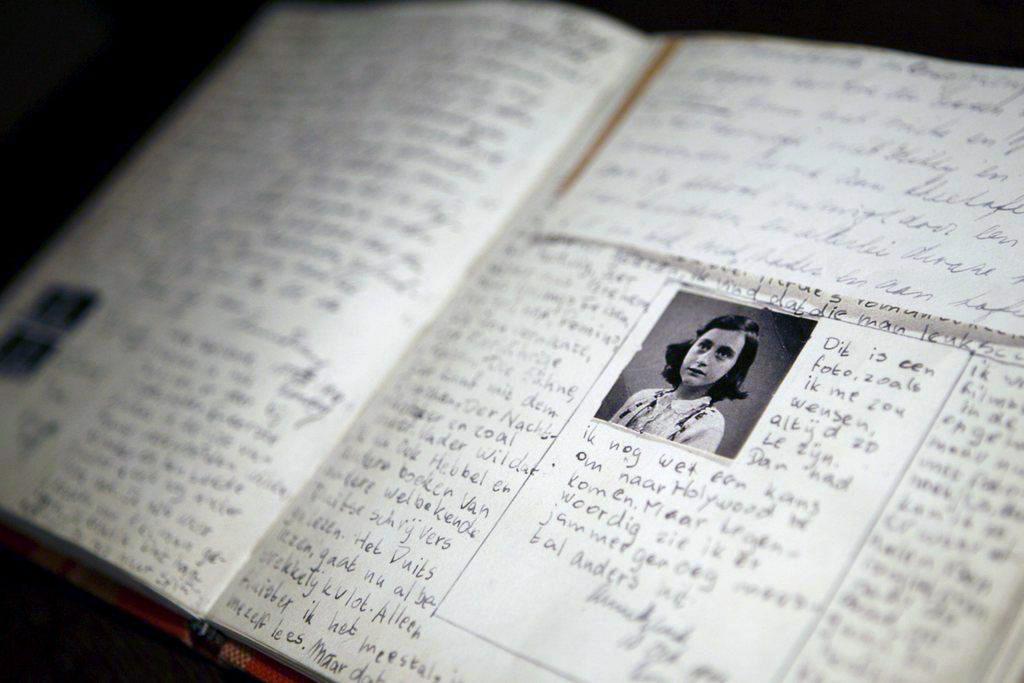
The Diary of Anne Frank has been put online by a French politician and an academic, who cite EU law and the importance of intellectual freedom. The Basel-based Anne Frank Foundation is considering legal action, saying it still holds the copyright.
“Anne Frank died in 1945 [in the Bergen-Belsen concentration camp in Germany], therefore her diary should enter the public domain on January 1, 2016,” argues Olivier Ertzscheid, a lecturer at the University of Nantes, who has published the original Dutch text on his blogExternal link. At the same time, Isabelle Attard from the French Green Party put it online on her websiteExternal link.
According to French law, which conforms to an EU directiveExternal link, a work falls into the public domain on January 1, 70 years after the death of its author or last surviving author in the case of multiple authors. But as copyright law is determined at a national level, each country has its own rules, resulting in differences in protection periods.
“According to Swiss copyright law, copyright protection expires 70 years after the death of the author,” Emanuel Meyer from the Swiss Federal Institute of Intellectual Property told swissinfo.ch.
The Anne Frank Foundation (AFF) sees things differently, pointing to the applicable French copyright law, which says a work first published posthumously before 1995 remains protected for 50 years after the initial publication.
At the centre of this legal stand-off are two questions: who is the author of the Diary of Anne Frank, and when was it published?
Creative input
Anne Frank began her diary in June 1942 aged 13 when she and her family moved into a small attic annex over a warehouse in Amsterdam, hiding from the Nazis. Two years later she started a revised draft.
However, the in-print version of the diary is a mixture of the two texts, compiled and edited by her father, Otto, the only member of the family to survive the war. For example, he removed passages in which Anne was critical of her parents, especially her mother, whom she described as “cold and tactless”.
These changes, argues the AFF, resulted in a new work and mean Otto earned his own copyright.
“As versions A and B (Anne Frank’s complete manuscripts) were first published (of course, posthumously) in 1986 in Dutch and in 1989 in French, they received a 50-year protection from 1986,” the foundation’s Yves Kugelmann told swissinfo.ch.
“The Dutch text [published by Ertzscheid and Attard] comes from an old abridged version, which the Anne Frank Foundation took off the market in 1991 and replaced with a complete version.”
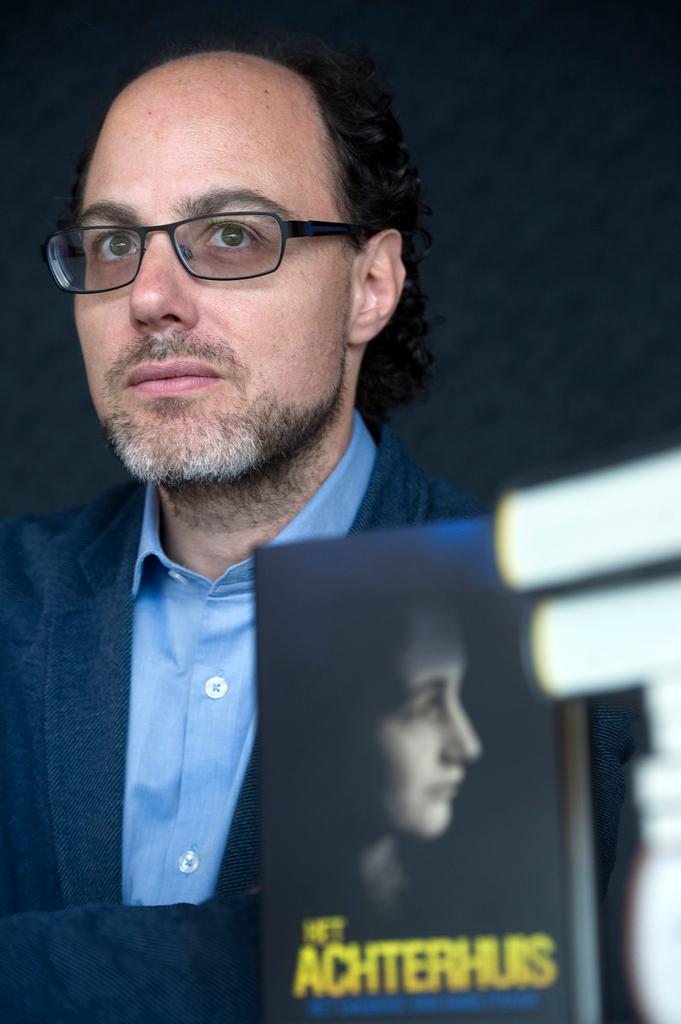
Emanuel Meyer agreed that “in the present case, we have to differentiate between Anne Frank’s original diary and the published books”.
“In this case the adaptor has his or her own copyright. For the version adapted by Otto Frank, the copyright expires 70 years after the death of Otto Frank [longer than the 50 years as written in Dutch law]. But even though we’re dealing with copyright-protected adaptations, that doesn’t mean the original diary is still protected,” he said.
“For works that are published posthumously, it is possible that there is a special protection for the publisher. So a continuing protection of the original diary is not completely ruled out. But Swiss law does not contain such a regulation.”
‘Privatisation of knowledge’
Attard has criticised the foundation’s opposition as a “question of money”, adding that if the work was in the public domain, its author would gain even more publicity and fame.
“The intimate diary, written in a secret apartment in Amsterdam by a Jewish teenager, born German but stripped of her nationality, has finally entered the public domain,” she said in a statement with the headline “Long live Anne Frank, long live the public domain”.
“Seventy years after the author’s death, the whole world can use, translate and interpret these works, and use them to create new ones,” she said, adding that “combating the privatisation of knowledge … is totally relevant”.
In response, Kugelmann said the AFF and Otto Frank had made the diary accessible for the public and uses the proceeds of the copyright exclusively for charity, good causes and educational projects all over the world.
“The opposite of privatisation is in fact the case, since Otto Frank and his organisation could have, for various reasons, withheld from the public one of the most important eyewitness accounts of the 20th century.”
He acknowledged that the Diary of Anne Frank would one day enter the public domain. “And that’s a good thing once we get there. But at the moment it is beneficial for the texts to remain protected. The AFF ensures that the diary is published in an authentic form and translated completely in all territories, at a fair price,” he said.
“When a text enters the public domain, it is subject to market logic. With Anne Frank we’re dealing with various unfinished manuscripts of a text which need expertise and the supervision of a publishing house.”
‘Egoistic vagabonds’
“If Attard wants to address the issue seriously, she should deal with the many decrees concerning French authors whose copyrights remain extended by special laws, for example The Little Prince,” said Kugelmann.
Antoine de Saint-Exupéry’s global hit – one of the best-selling books of all time – was published in 1943, a year before de Saint-Exupéry, also a pilot, was killed in action.
Normally the book would have entered the public domain on January 1, 2015 – 70 years after the death of its author – but in France, works of authors who died for France during the two world wars get an extra 30 years. This means The Little Prince should pass into the public domain in 2045.
“But the fact that Anne Frank and thus NGOs are once again being expropriated and subjected to attacks by populists continues a long list of egoistic vagabonds, which began with attacks by Holocaust deniers and forgeries of the diary,” said Kugelmann.
Legal measures
On December 28, the foundation’s lawyers sent a letterExternal link, in English, to Olivier Ertzscheid, asking him to abide by various conditions, including ceasing and desisting from making the Diary of Anne Frank available online.
In his response the following day, Ertzscheid repeated his belief that “within a context of escalating anti-Semitic acts and nauseating negationist speeches, the rise of the extreme right in a number of European countries and indeed as Mein Kampf by Adolf Hitler is set to enter the public domain on January 1, 2016, the public interest seems to me in this case to take precedence, without calling into question the work that the Anne Frank Foundation does to keep her memory alive and to educate”.
The diary was still online as of January 7.
As for taking legal measures against Attard and Ertzscheid now the diary has appeared online, Kugelmann said “how and whether the AFF or its global partners react will not be discussed in public”.
Anne Frank Foundation
The Anne Frank Foundation (AFF) was founded in 1963 by Otto Frank, Anne Frank’s father and the only family member to survive the concentration camps. He appointed the Foundation his universal heir and legal successor. As such, the AFF owns all of Anne and Otto Frank’s rights and represents the Frank family. When Otto Frank died in 1980, the Foundation assumed the role of custodian of Anne Frank’s writings and memory.
It is the Foundation’s duty to grant or deny licence applications for the use of Anne Frank’s works and to ensure that they are used respectfully and appropriately, and that no inferior products are brought into circulation. The AFF authorises many uses of Anne Frank’s works, some for a fee, but also many free of charge. Over the last 50 years the foundation has authorised and supported numerous projects, plays, books, films, performances and educational projects to ensure that the many interpretations of Anne Frank’s texts do justice to the diary.
The Foundation is run by an honorary, unpaid board with a small office in Basel, where the continuous stream of licence requests is processed. As instructed by Otto Frank, the AFF uses the proceeds of the copyrights exclusively for charity, good causes and educational projects all over the world. The AFF supports many projects and initiatives. For example, at the special request of Otto Frank, the Foundation pays the medical bills of scores of people who helped Jews during the Second World War.
(Source: AFF)

In compliance with the JTI standards
More: SWI swissinfo.ch certified by the Journalism Trust Initiative








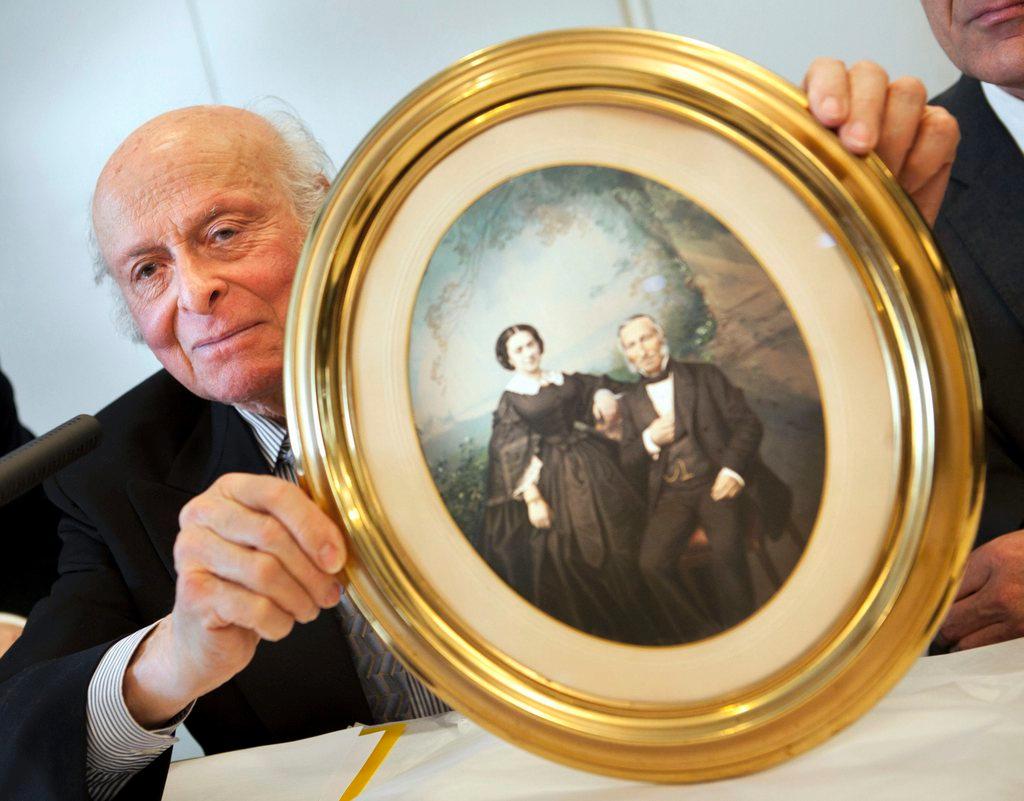
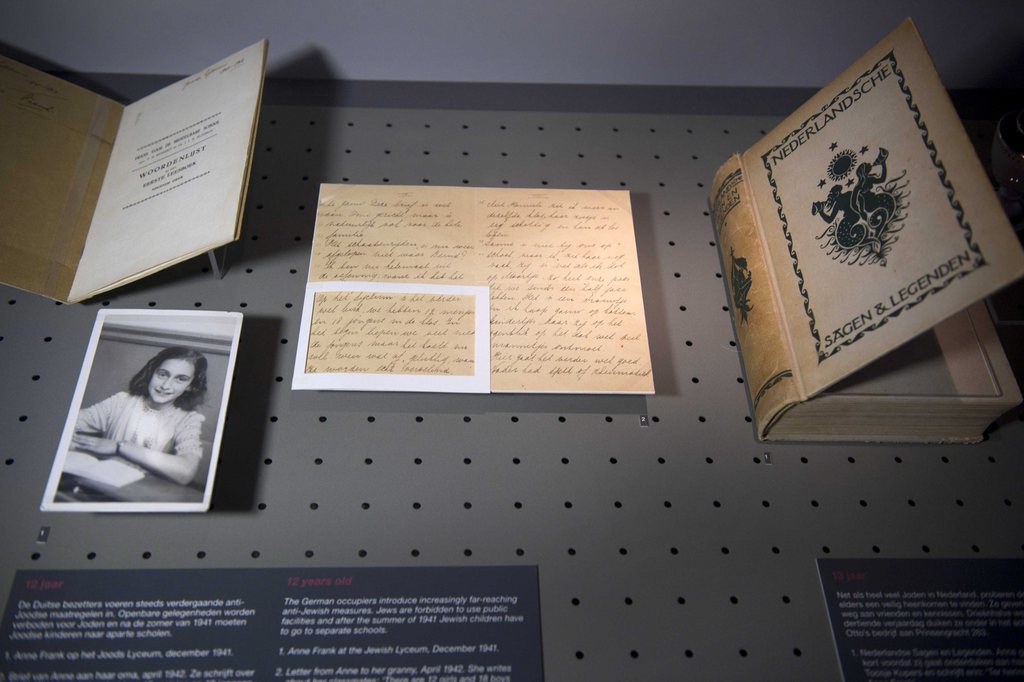
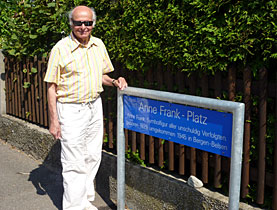
You can find an overview of ongoing debates with our journalists here . Please join us!
If you want to start a conversation about a topic raised in this article or want to report factual errors, email us at english@swissinfo.ch.